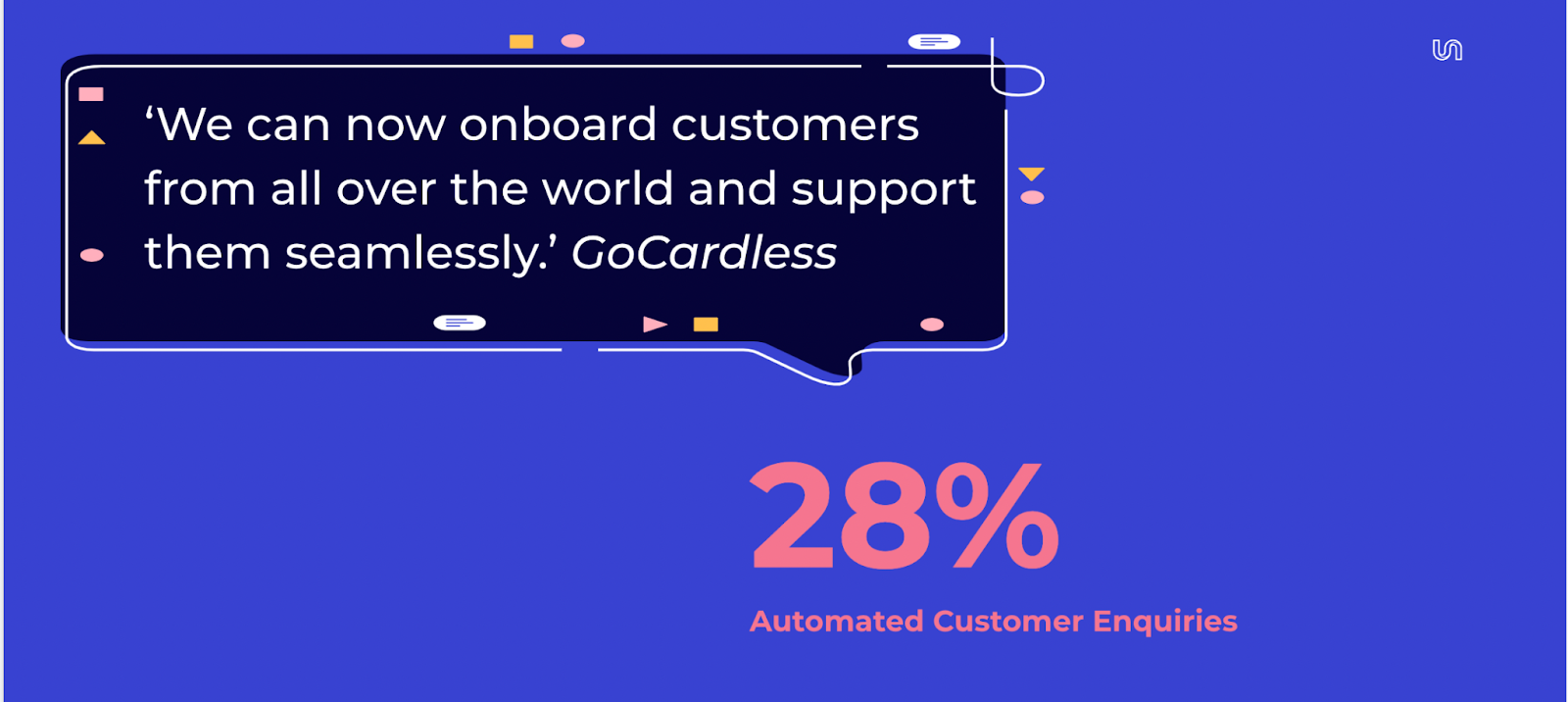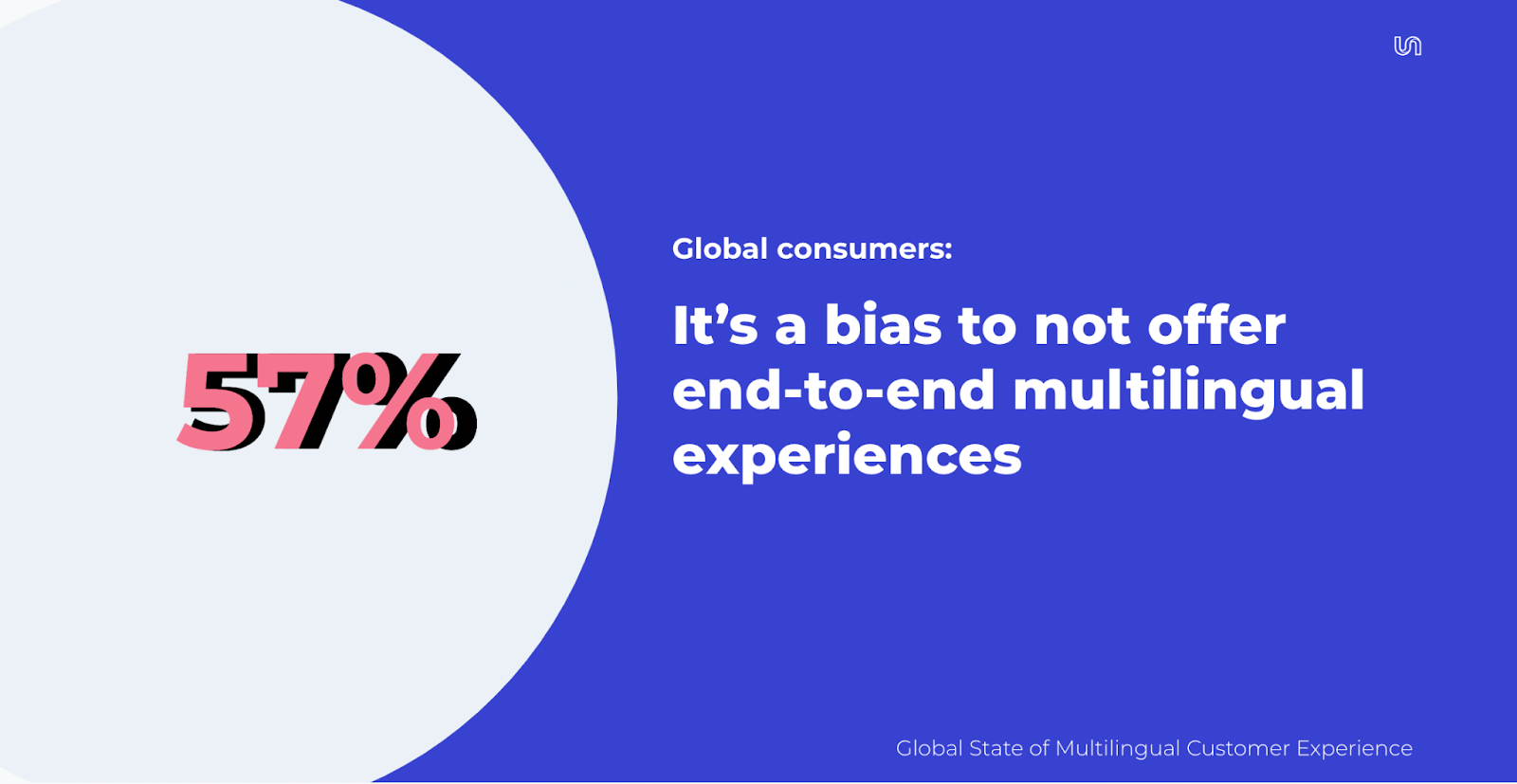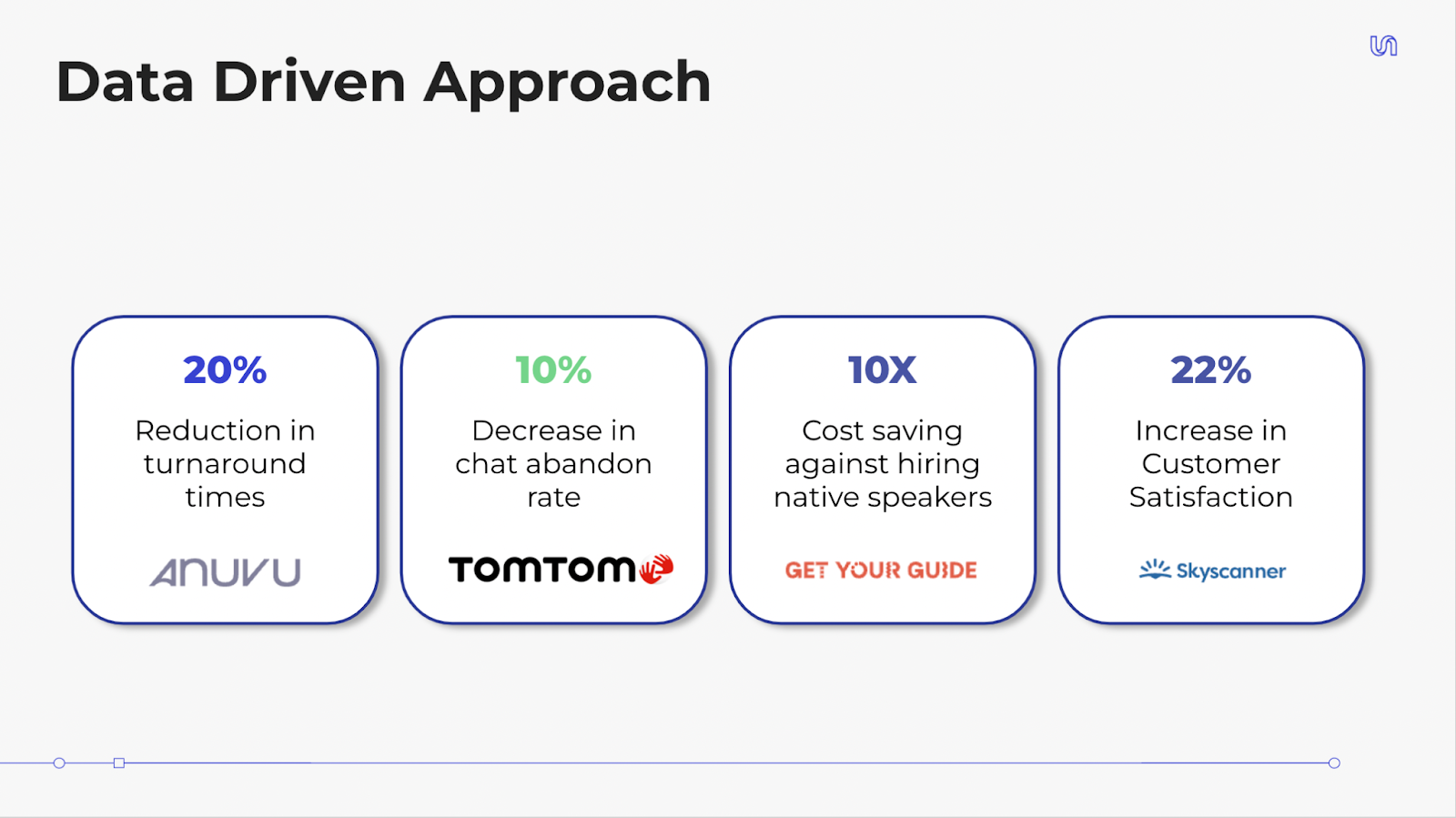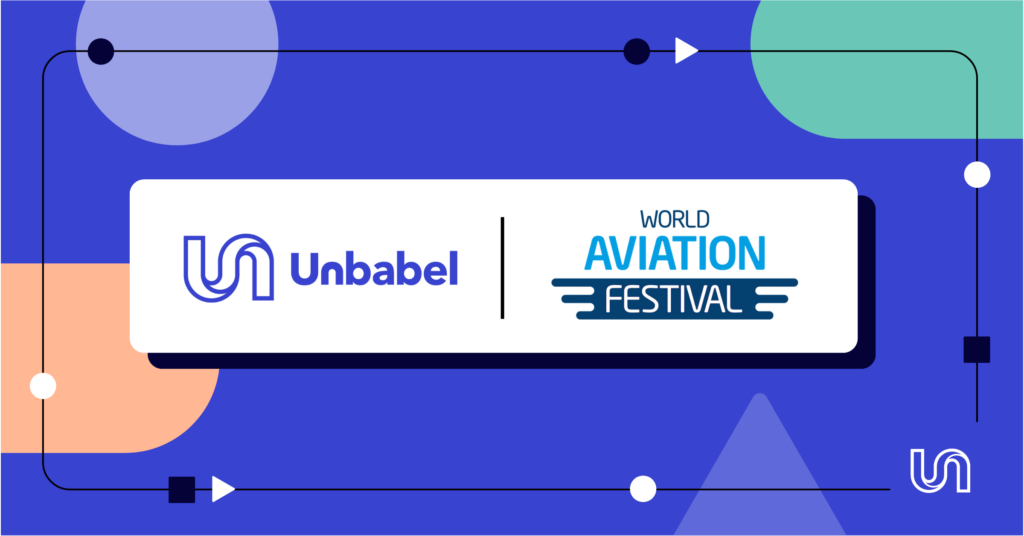Driving New Efficiencies and Improved Service to Customers Across Multiple Languages
By its very nature, travel is one of the most global industries. The travel industry often handles surges in customer support — whether the knock-on effects of inclement weather, increased demand for a festival or conference, or holiday surges like during Christmas and Black Friday. It relies on first-class customer service to keep travelers content as they voyage across the globe.
Check out these three customer support tips recently presented by Unbabel’s Roxana Telescu, Account Development Director in S&M, at the World Aviation Festival, to help travel industries upgrade their customer experiences. Roxana helps businesses in Europe, the Middle East, and Africa use Unbabel’s language platform to expand and localize their offerings, and consolidate their global content strategies to provide consistent omnichannel experience across the customer journey.

1. Implement strategic measures beforehand
Roxana’s first tip is to lay the groundwork before a surge occurs. In doing so, businesses can:
Implement self-service tools and make customers aware of them
Consolidate and integrate your tech stack for a single view with all customer details and activity
Offer frequent training and give time for agents to process the learnings and solutions
There are many tools available to facilitate the processes; the key is to ensure they help not hinder. When a surge happens, the last thing you want is for the customer support team to have to rummage for account information or to have to wait for the systems to start working in the right location or language. These systems need to be able to support multilingual customer service teams — both through proper setup and suitable training — work with other systems, and, ideally, integrate with your current set of tools.
More and more businesses are incorporating Knowledge Management & Training teams in their global strategies, Roxana notes. Knowledge Management & Training teams act as a key component to keeping the customer teams up-to-date, confident, and aware of new events, process updates, and business changes. These trainings need to be localized for the customer support teams — both referenceable and relatable in other languages. Having the training available for all customer service teams solidifies the global strategy and ultimately improves customer interactions.
Nowadays, making the process smooth sailing for your agents, customer service team or brand ambassadors means using technology. From AI tools and chatbots to Guides and Knowledge bases, technology and assets help your CS team focus on what matters — delivering sky-high customer experiences. Developing a multilingual experience across customer touchpoints, by localizing response templates for email and chat, or guides for self-serve tasks, helps customers relate to your business, build customer loyalty, and can often allow them to solve their issues quickly, freeing up call centers and superpowering customer support agents.

GoCardless, a global payment provider that serves businesses such as Tripadvisor, Docusign, and Nutmeg, experienced first-hand the benefits of reducing repetitive tasks on its CS team to improve its customer satisfaction scores (CSATs). It focused on delivering self-serve globally by increasing the number of multilingual guides. It also managed to automate 28% of the customer inquiries, allowing agents to focus on tasks that required more attention and maintain their high CSAT scores.
2. Proactively react to surges
As much as you can plan for them, surges do happen. So, your business needs to determine an optimal way to work through them. Roxana shared some of the key things businesses she works with enact:
Use AI tools for routing, translation, and personalization
Automate repetitive tasks and turn on auto-reply emails
Have your best agents handle complex tickets
Roxana shared that having the elite customer service agents handle complex tickets usually improves CX, as it’s often those tricky situations that result in lower scores, a bad experience for the customer, and even customer churn. Empowering the team by removing language barriers means they can answer customers regardless of geo or language — and helps deliver CS expertise wherever it’s needed most. Investing time upstream benefits the activities downstream by having the technology prioritize and reallocate tasks, remove language barriers, or personalize messages, which in turn empowers the team during a surge, and facilitates happy customers and customer retention.

3. A data-driven performance review
Once a surge passes it’s important to follow up:
Look at other metrics beyond top-level CSAT (e.g., CSAT by region, channels used)
Make the data and goals widely accessible to your team and partners
Conduct a post-mortem to determine what went well and areas for improvement
Dive into the data: Don’t just give it a cursory glance, look beyond the surface level into:
Channel usage
Resolution time
Wait times
Agent performance
Response time
Time from first contact
Net Promoter Score (NPS)
CSAT per geo, country, and language
A travel agency supporting customers in Germany, France, Italy, Spain, and Austria would want to gather data for at least these five separate countries and four languages. They might dig deeper by looking at the data for the localized languages German (Germany) vs German (Austria).
Once you’ve done the data analysis and reporting, make sure to share the report with your team and partners. Equally, says Roxana, set and share KPI goals with your localization partner, contact center provider, or other BPO, this helps all parties align and stay focused on what matters. Often, your partners can help supply some of the data and make sure things are kept on track. When it comes to handling travel surges, meeting customer needs, and ensuring satisfied customers, it’s key to be transparent and work as partners.
Roxana notes that the last point is one shared by many Unbabel customers. Getting feedback from the customer support team can illuminate pain points in the support experience, customer sentiment, and even small changes that can make a big impact.
For example, one customer discovered that their multilingual CS team really wanted to change one of the buttons on the website to improve user experience and ease their workflow. This design tweak was an easy change, but it made a huge impact on the CS team and enhanced their team satisfaction levels. Listen to key team members: They understand how the customer feels, the root cause of issues, and what you can do better. By implementing these changes, businesses can ultimately boost customer satisfaction.

Through data analysis, Get Your Guide discovered that using a language service platform was saving its budget. Using an automated language service met its language requirements at “one-tenth of the cost of running a native solution.”
Hiring customer support agents for surges can be difficult and costly. Often, it’s hard to hire agents for these smaller time periods and ensure they receive adequate training, which can result in poor customer experience. Alternatively, if you keep staff on between surges, this is an extra strain on your budget.
To be a successful global company, you need to deliver the best experience to your customers. Using a language service platform removes the language barrier and helps travel brands provide a multilingual solution across the customer journey.
Key takeaways
If your business supports customers across multilingual languages and markets, consider localization upstream in your processes. Resolving issues before they occur can have a massive impact on downstream activities and help customer support agents provide the best possible customer experience. Embrace technology and adopt the right tools and systems for your process, markets, and language requirements. Lastly, be data-driven: Get really granular and share the report and subsequent goals with your CS and language partners. By doing these three takeaways you can improve your CSAT scores during travel surges.
Want to deliver a premier customer experience to your travel customers? Unbabel’s language solutions platform already helps Accor Live Limitless and Hopper reach new heights with multilingual CS.












